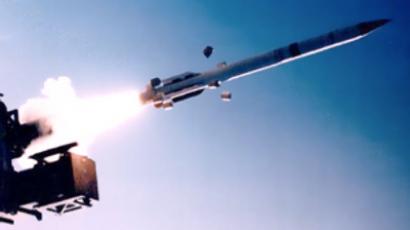Romania prepared to host US anti-ballistic interceptors
Romania announced it is ready to host anti-ballistic interceptors as part of an American missile shield in Eastern Europe. Russia is willing to consider discussions with the EU and the US over a threat assessment.
The move has already been approved by Romania’s supreme defense council and has been submitted to parliament for its backing. Romanian President Traian Basescu says Romania was invited by the US to take part in its new missile shield program.
After Basescu made the details public, the US came out to confirm the plans, adding that the system is not aimed at Russia, but at Iran.
American anti-ballistic missiles will be in service in Romania by 2015, according to the US State Department. Philip Crowley, a spokesman for the US Department of State, mentioned that missile defense elements placed in Romania will be on land, and “sea-based elements are also planned.”
Moscow hopes Washington will offer a full explanation of the news.
“Both the Russian and American presidents have agreed to attempt to find common views on the threats and risks of proliferation. After we know we have a common understanding here, the dialogue can move on,” Russian Foreign Minister Sergey Lavrov said. “We hope our American partners will give us a clarification on their plans to deploy a missile shield in Romania.”
Deputy Prime Minister Sergey Ivanov says the new plan is very familiar.
“It is still unclear what infrastructure and weapons systems are concerned. If they are identical to those the Bush administration planned to deploy in the Czech Republic, then it's just trading one problem for another,” Ivanov said.
“Yes, we do have certain concerns, and questions which I’ve asked our American partners, and we are now waiting for them to explain what the planned system is going to be like and against whom it will be targeted,” he added.
In September of 2009, US President Barack Obama said he intended to revamp the Bush-era plans for a shield in Eastern Europe, instead only placing Patriot missiles in Poland and possibly sea-based systems elsewhere.
The new strategy proposed by Obama will be much more “formidable, comprehensive and powerful than that suggested by President Bush in 2007,” says independent political analyst Vladimir Kozin.
If the US chooses to place anti-ballistic interceptors in Romania, it could jeopardize US-Russian relations and the START treaty negotiations, says Giulietto Chiesa, Italian politician and former Member of the European Parliament.
“President Medvedev and Prime Minister Putin have already said many times that this will seriously influence the balance of forces in Europe, which means that it will produce a very bad effect on US-Russian relations,” Chiesa said.
Ivan Eland, Senior Fellow of the Independent Institute, says the issue is political rather than a matter of security.
“The real issue here is political. The former Warsaw Pact countries want to get as much military hardware from NATO and the US and as many service people in there from those countries, especially the US, [as possible] so that if there is ever a war, US people will have to be killed should any other country come in. Russia, on the other hand, sees an encroaching NATO alliance coming,” he said.
The head of the Russian State Duma's International Affairs Committee Konstantin Kosachev has said Russia still needs time to analyze this new situation.
“I believe it would not be proper to give any response without having a proper analysis, but I will definitely confirm that this is a very unpleasant and disappointing development for Russia,” he said. “Of course we were aware of the plans of the American Administration to proceed with this program and Romania was somehow mentioned in it, but the agreement between the Russian and the American presidents in 2009 was about having further political consultation and assessment of joint challenges and threat – and only after that proceeding with any practical arrangements.”
German political advisor and journalist Christoph Horstel thinks all possible concerns over the arrangement are well-justified.
“I have publicly said in the past that Russia should take a tough stance against these plans alongside some of the European sympathizers,” Horstel said, adding, “This is not going to stabilize Europe or anybody in the bigger region. This is just another aggressive step against Russia by Washington. It is not in the European interest to tolerate that.”
Dmitry Rogozin, the head of Russia’s mission to NATO, says Romania’s decision only confirms the fact that “there is no difference between the race for anti-ballistic missiles and strategic offensive weapons.”
Rogozin also said he expected this to be confirmed during the US-Russian negotiations that are underway in Geneva.
Read also – USA Strongly Determined to Deploy Missiles as Near to Russia as Possible













